
Study in the Dalton building
Discover our new home for science and engineering, and the world-class facilities available to our students.
Investing in your future
The Dalton building is our brand-new home for science and engineering set right in the heart of the University’s bustling city-centre campus.
This is a place where we turn innovation into impact – from pioneering drug treatments to strengthening cyber security and developing advanced materials for clean energy.
With us, you’ll learn how to harness science and engineering to make a better future for everyone.
We’ve created a learning environment that is centred on the student experience.
Designed to be dynamic, you’ll find open study and social spaces on every floor, where you can interact with students and researchers from every discipline within the faculty.
Facilities
Get to know the facilities
The Dalton building provides a professional study environment with purpose-built teaching and research spaces for each subject area. This means that when you graduate, you’re well prepared to excel in a modern workplace.
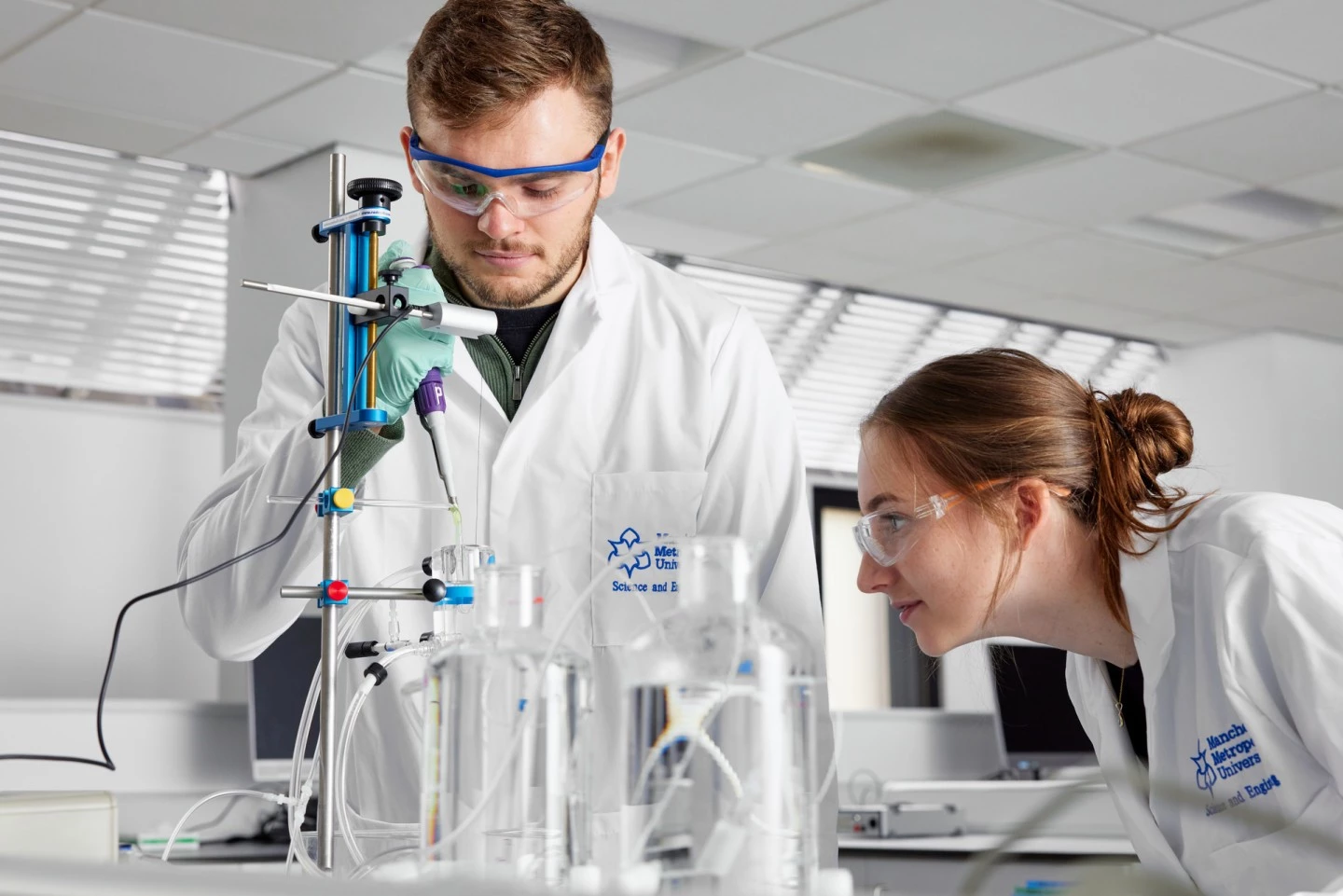
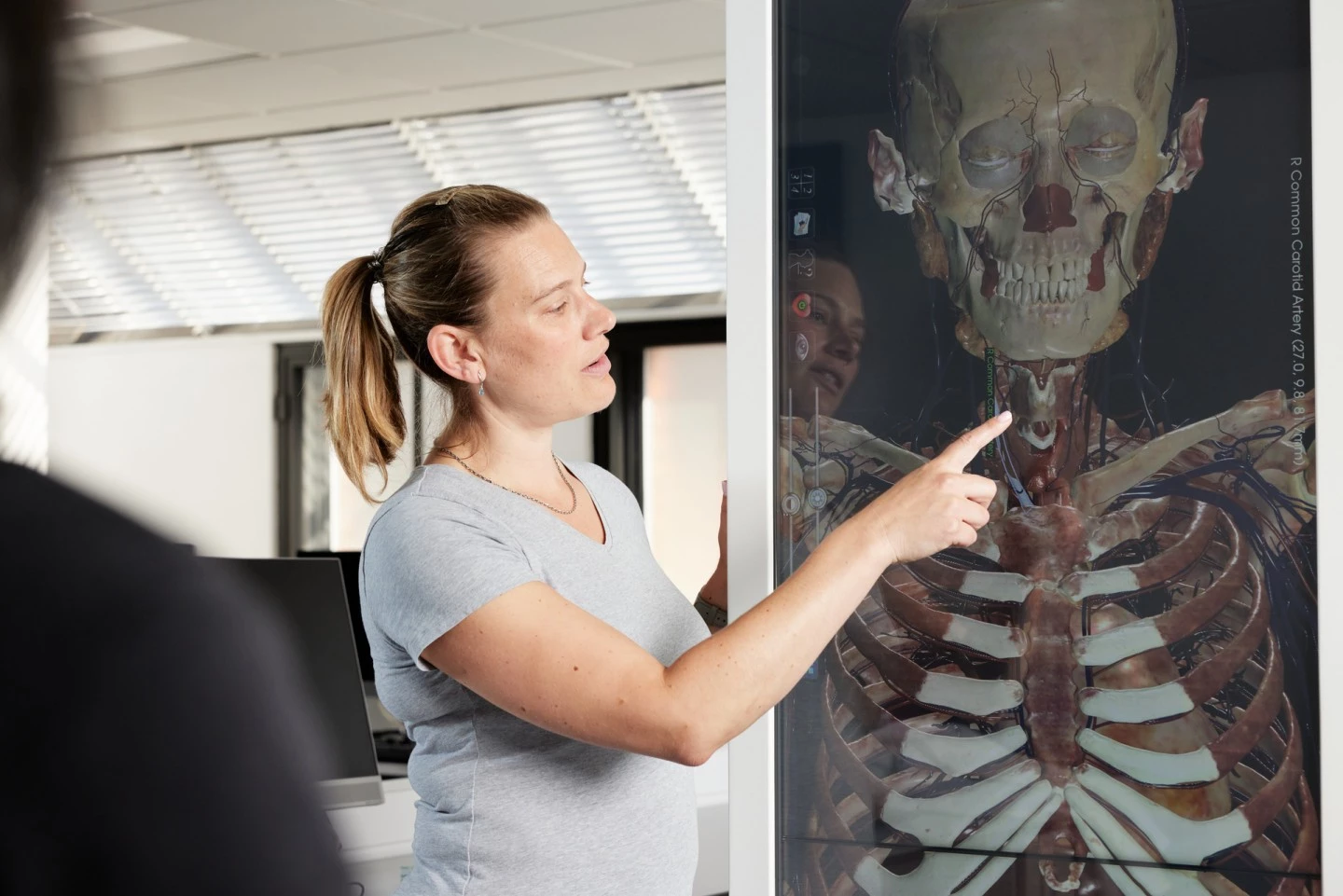
Our cell and molecular, microbiology and physiology research labs provide excellent facilities to undertake cutting-edge research.
You’ll have access to specialist equipment and technology in our active learning suites throughout your studies, enhancing your skills and research projects. This includes:
- high-quality portable microscopes that can be used outside a lab
- virtual dissection/visualisation tables and tablets to assist in learning core topics in anatomy, physiology, histology and disease
- patient simulators to accompany learning complex disease models
- access to research-grade equipment to capture data and analyse human physiological functions in both laboratory and remote environments
As a student on one of our life sciences courses, you’ll also have access to several online virtual lab simulations. This will help prepare you for working in the real world and allow you to revise key subject areas in your own time.
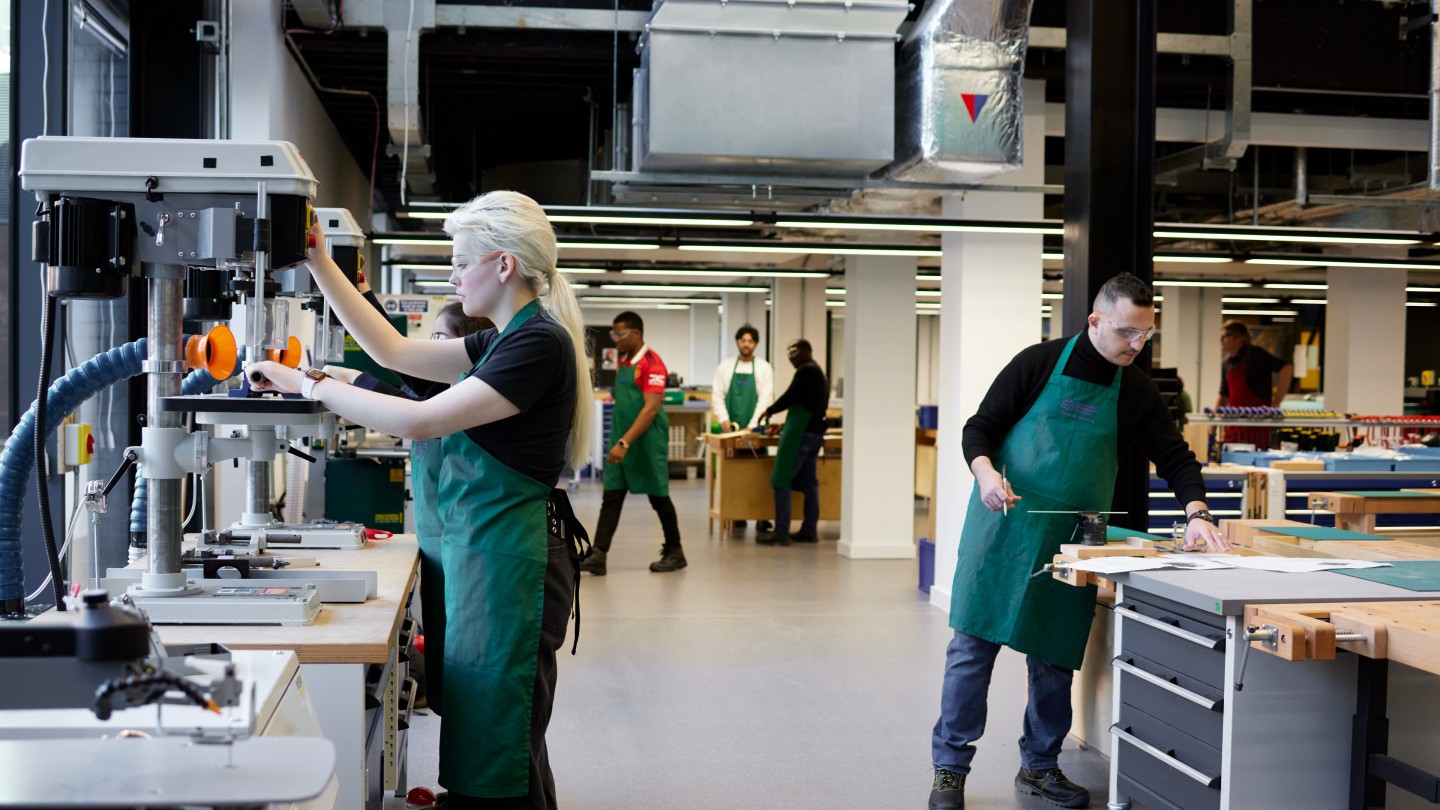
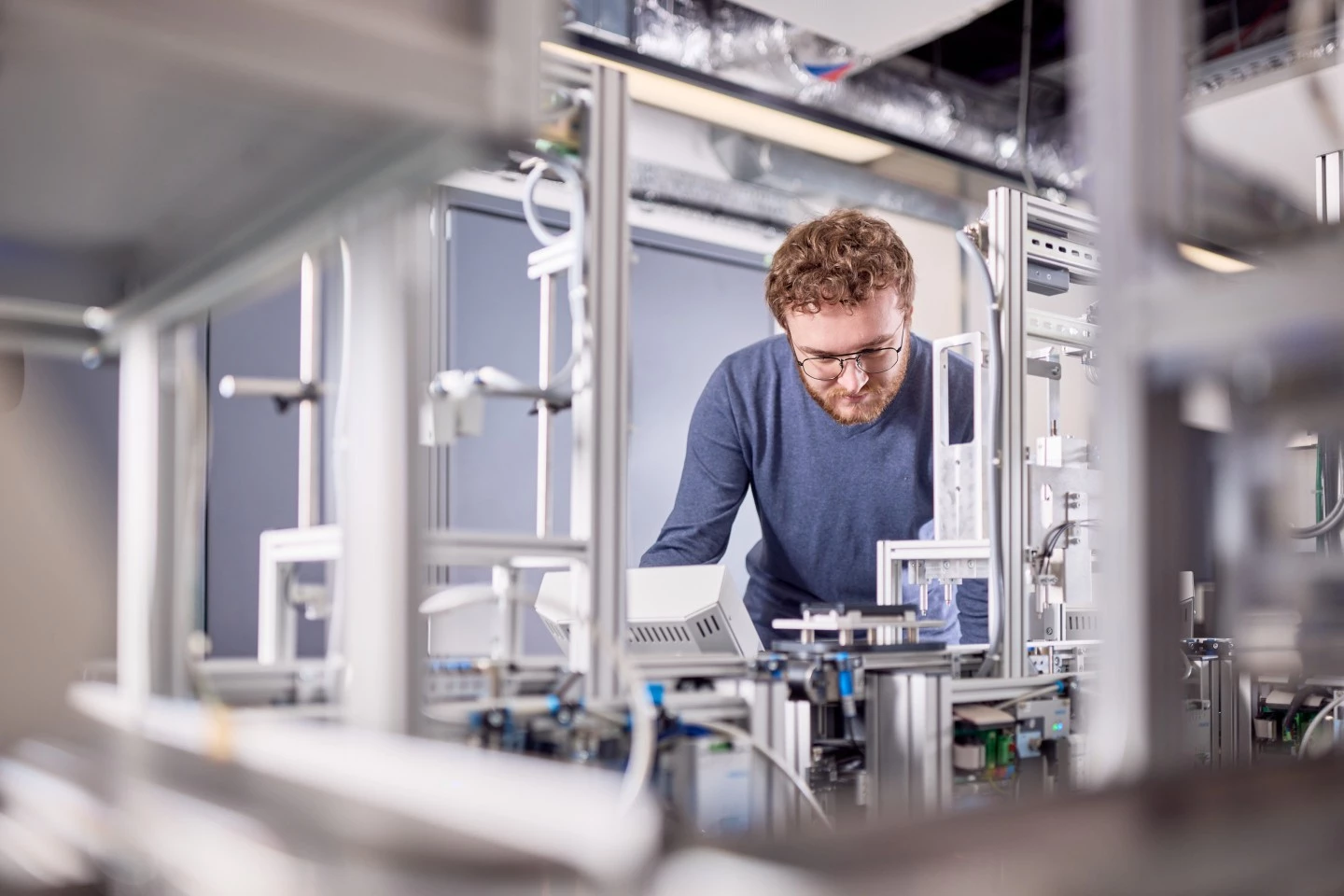
Our engineering facilities include some of the latest Industry 4.0 technologies.
Unique in an educational setting, you will not find such advanced equipment anywhere else. For example, our cyber-physical lab has been equipped in collaboration with Siemens and includes:
- a FESTO Cyber-Physical System smart factory demonstrator
- a Cobot collaborative robot
- Franka Emika Panda robot
- industry-grade software
- Internet of Things technology
- an Autodesk robot
Other newly refurbished facilities include:
- a light manufacturing workshop where you’ll create various prototypes and models of your designs using our fabrication resources
- a mechanical engineering lab, equipped with a variety of materials, dynamics and fluid-dynamics testing rigs
- an electrical and electronic engineering laboratory with 50 individual workstations so everyone can get hands-on in class
- a machining area and materials testing equipment so you can enhance your skills with experience using traditional manufacturing as well as state-of-the-art five-axis machining
- manufacturing facilities where you can design your own printed single and double-sided circuit boards and have them manufactured in-house
All these spaces feature new equipment that improves your learning experience and you work more collaboratively with peers and industry partners. For example, the electrical and electronic engineering lab has full audio-visual support which provides a hands-on, active learning environment.
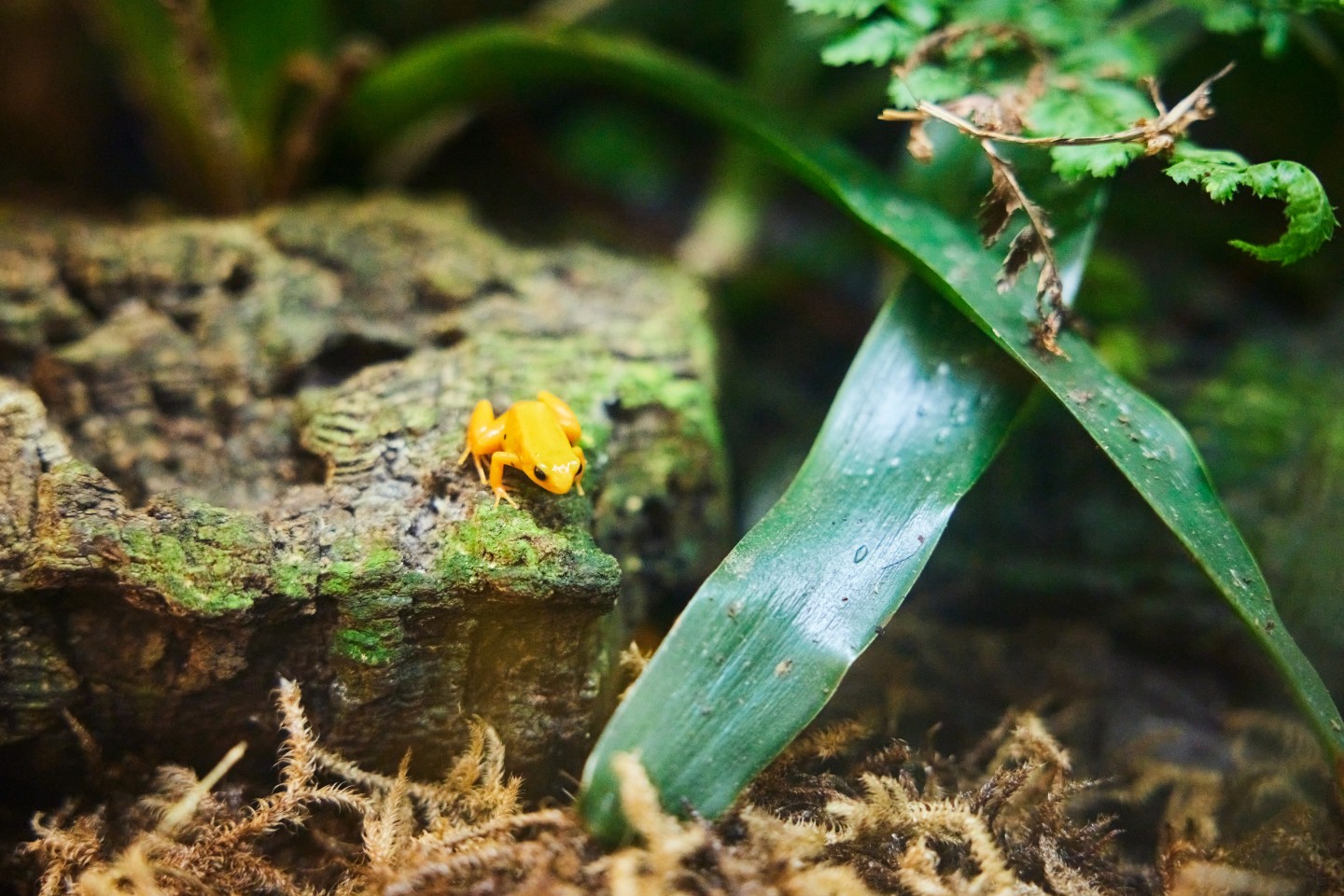
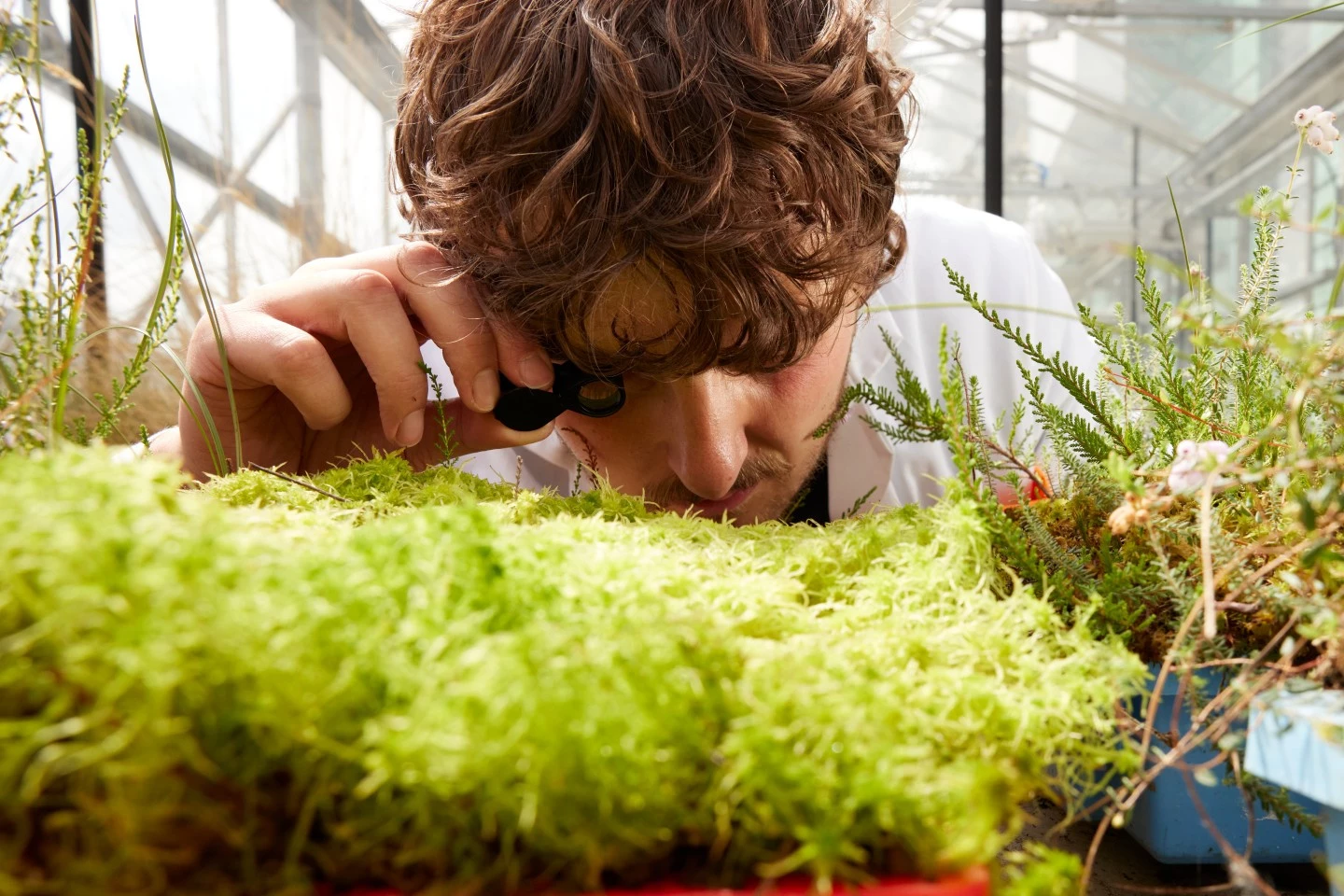
Our earth and natural sciences laboratories have all been recently refurbished with state-of-the-art facilities.
Coupled with access to field equipment such as ground penetrating radar, this means you can graduate with the practical skills and experiences that will help impress future employers.
Our flagship biogeomorphology lab is a new facility that delivers research into interactions between river sediment transport systems and the plants and animals that live within them. It is used for teaching in both undergraduate and postgraduate modules and includes:
- a computer-controlled 10m experimental research flume with sediment-handling capabilities
- two smaller demonstration flumes
- attendant instrumentation, such as ultrasonic depth sensors and a structured-light 3D scanning system, to take detailed measurements of water flow and sediment transport
Other facilities and equipment include:
- the UK’s only university-based amphibian conservation research facility, where we work with zoos nationwide to determine the best way to keep frogs in captivity
- an aquatic research centre and marine room, with fish and frog pods that offer unique opportunities for research-based learning of behaviour, conservation, ecology, evolution, zoo geomorphology and welfare
- experimental flume tanks to investigate river geomorphology and bio-geomorphology
- a laser diffraction particle size analyser for looking at sediments from soils, lakes and oceans
- an ion chromatograph and inductively coupled plasma optical emission spectrophotometer which helps detect and monitor environmental problems such as pollution
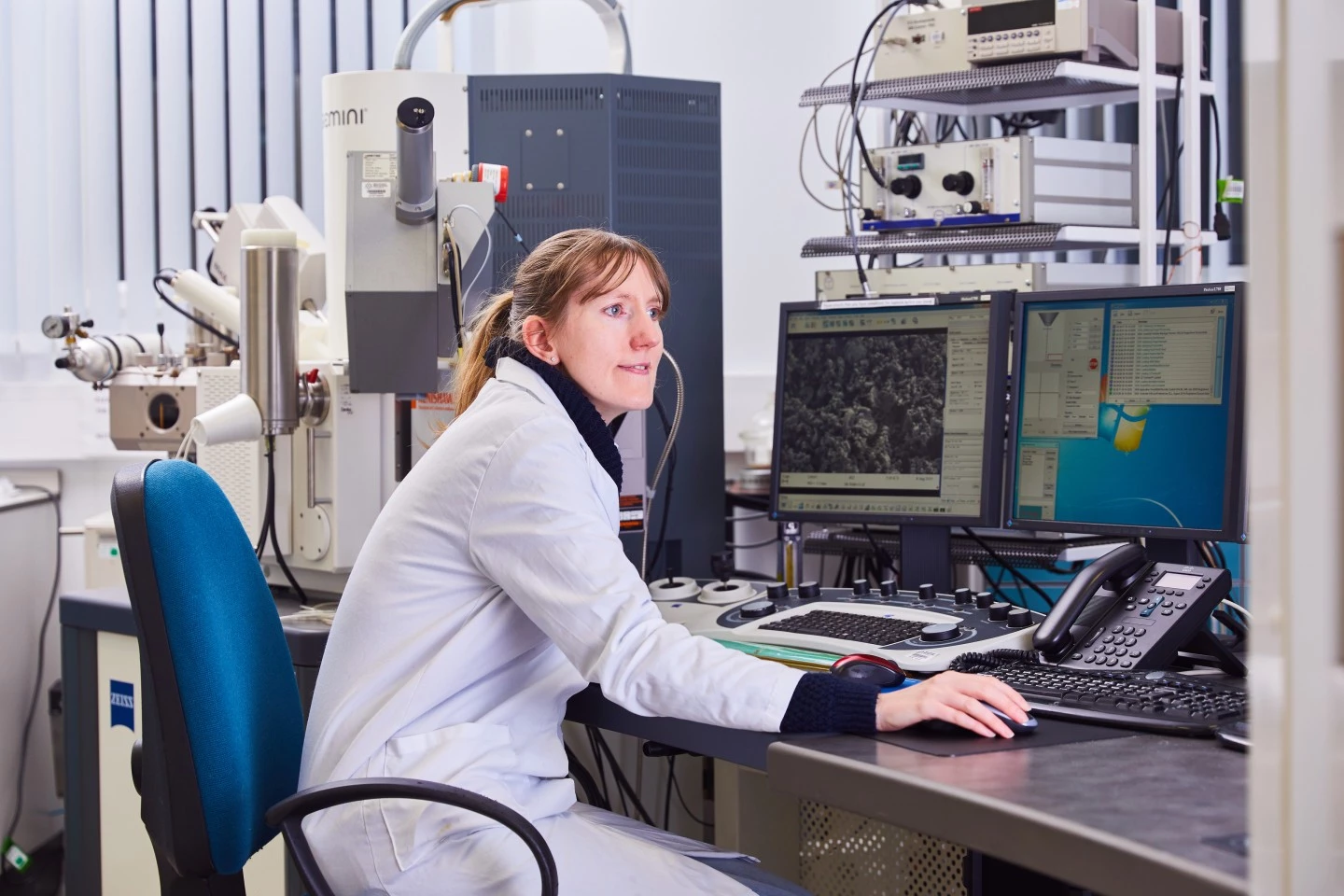
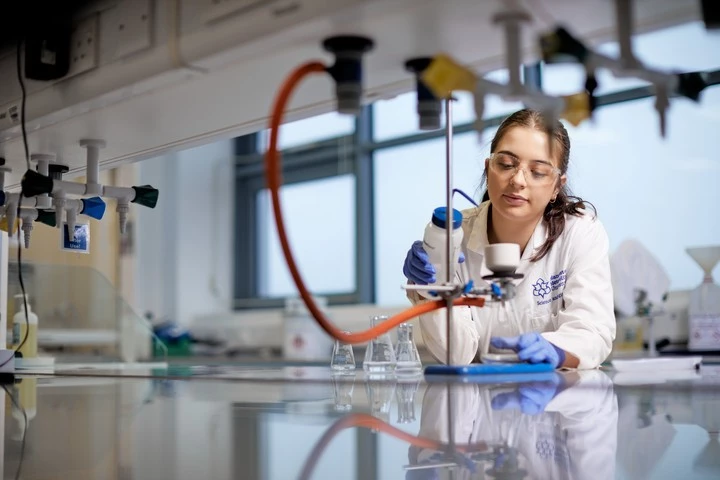
The analytical core facilities lab has been designed to encourage a multi-disciplinary approach to learning and research.
Thanks to centralised instrumentation, all our equipment is now available in the same space, helping our scientists to share their knowledge across disciplinary boundaries.
This opens doors for building wider industry connections and increases your employability.
Both undergraduate and postgraduate students are fully trained to use our highly technical equipment – experience you’ll need to help you stand out in the job market. Equipment includes:
- a scanning electron microscope
- x-ray diffraction analysis
- high field nuclear magnetic resonance
- a mass spectrometry walk-up system
Chemistry and materials students also have access to our state-of-the-art hydrogen Fuel Cell Innovation Centre, home to ground-breaking research into electrolysis and energy technologies.
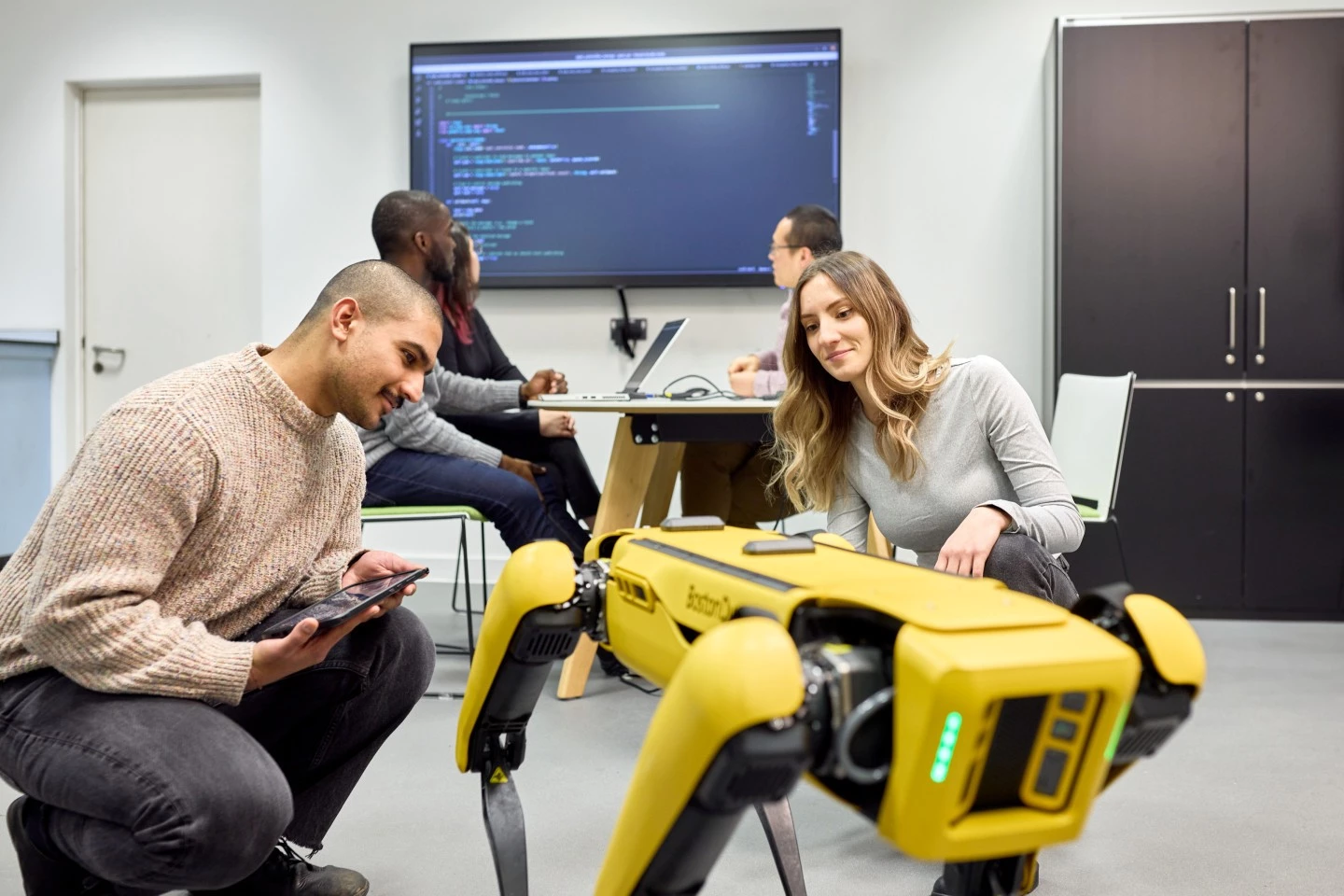
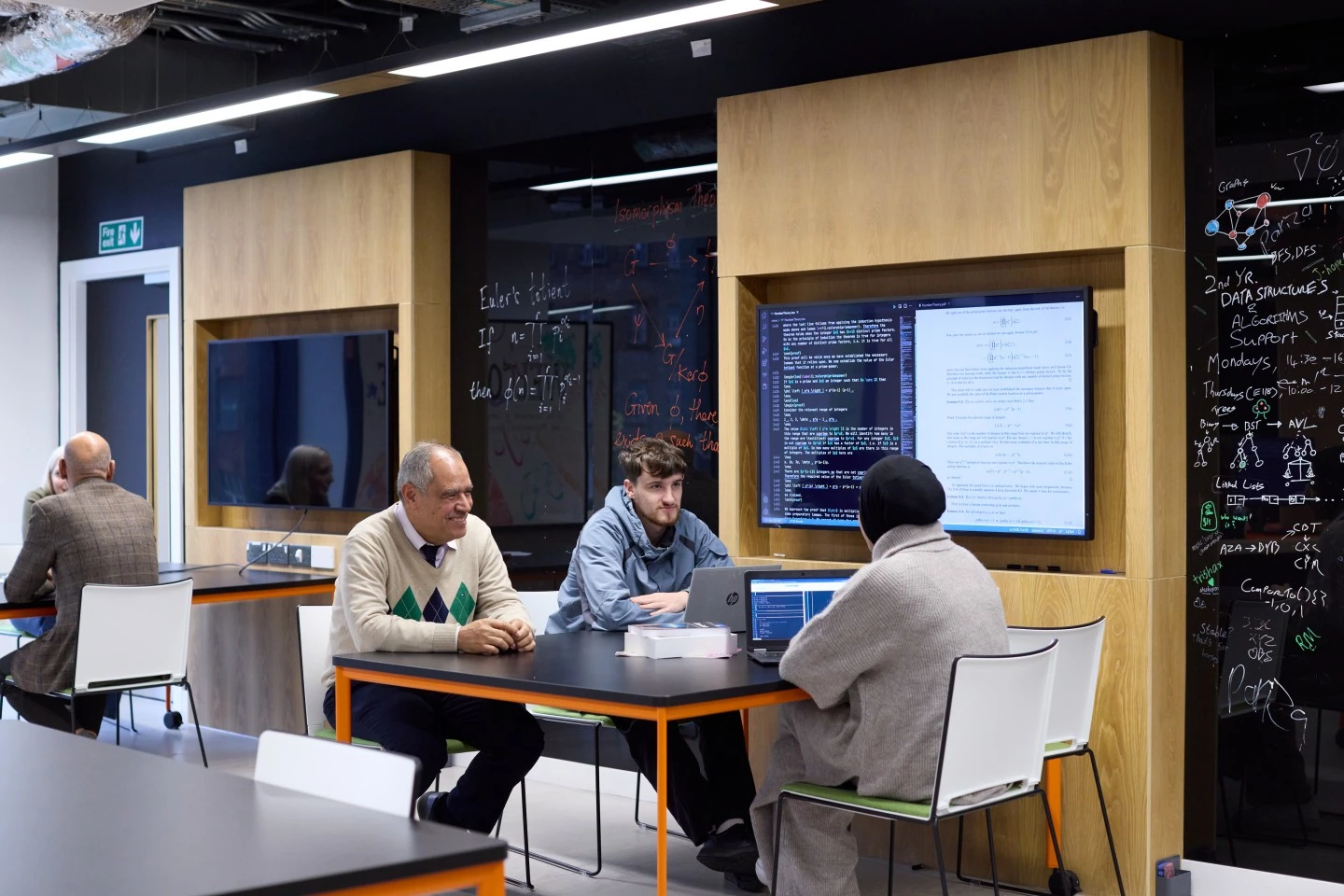
Our newly refurbished computing labs are equipped with specialised industry software and advanced hardware capabilities to allow you to do work of the highest quality.
You’ll benefit from working in adaptive environments which effectively emulate the industry experience.
The robotics lab is equipped with an array of advanced robotic platforms, including:
- the Boston Dynamics Spot Dog
- the Sawyer Robotic Arm
- TurtleBot Robots
- Nao humanoid robots
These state-of-the-art robots are used in both teaching and research, providing you with hands-on experience and promoting interdisciplinary research across various applications.
Our gaming students have access to our profiling, usability, virtual reality and games lab. Perfect for experimenting with cutting-edge technologies, the lab includes a dedicated playtesting setup, a two-way mirror for user observation, sensors and tracking devices for virtual reality headsets. There are also spaces to test and develop for Oculus and HTC headsets.
Superlab
The Superlab is an open-plan, modern laboratory environment with state-of-the-art equipment.
We’ve designed it to allow over 190 students and researchers from different subjects to work together in the same space at the same time. That way, you can interact with one another, inspire innovative ideas and grow your professional network.
The Superlab is used predominantly by our life sciences, biology, conservation and earth sciences students.


